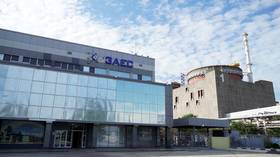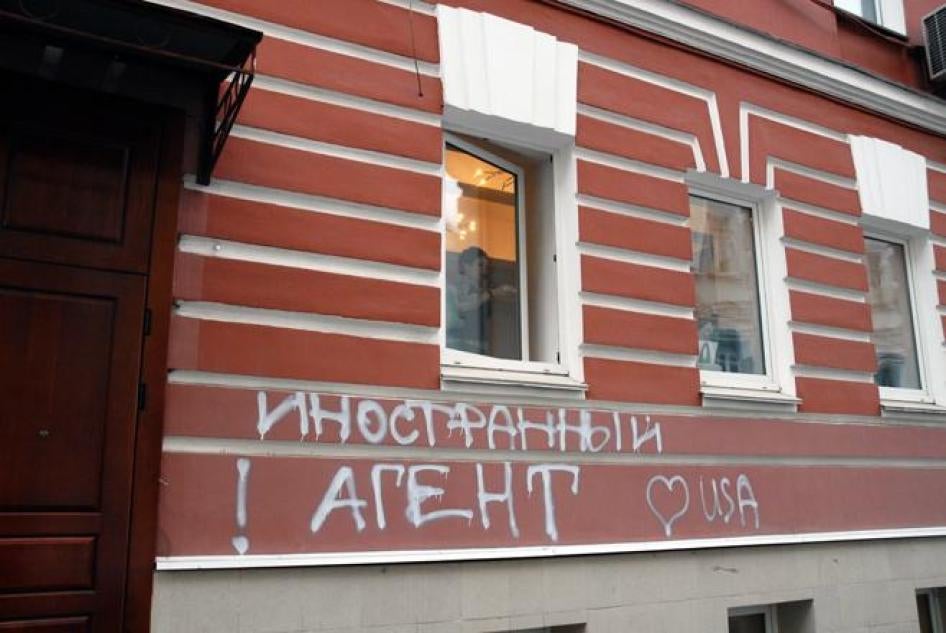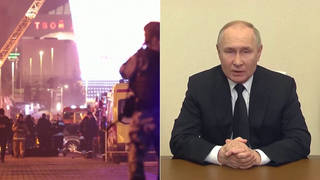The American public awaits the coming presidential election…. with trepidation. Democrat assertion that the Republicans colluded with Russia to interfere in the 2016 election on the side of Donald Trump and Republican assertion that the Democrats stole the 2020 election from Donald Trump remain bitter memories for the two political Parties. Both assertions are illusions, easily proven false, and still have growling followers.
The fabricated illusions that muddled the past elections remain; Trump constructs illusion as his principal political tool and Biden proceeds with perpetrated illusions that he is in total command and apartheid Israel is worth defending. Include presidential hopeful Robert F. Kennedy Jr. in the crowd, a candidate whose illusions are his main appeal. Illusion has replaced reality and guided domestic policy, foreign policy, and politics. Before examining the present, demolish the illusions perpetrated in the previous elections and ask why they remain when reality proves they did not exist.
The Russians interfered in the 2016 election
The calculating and repetitious forces that implanted the accusation of Russian interference in the American psyche made it difficult to refute the charge. Debate on Russian interference was not accepted and was silenced with derision. Reality shows it was an illusion.
The most quoted proof of Russian interference in the 2106 presidential election contained several elements:
Seventeen United States (US) intelligence agencies certified Russian interference.
Acceptance of the charges came from the belief that 17 US intelligence agencies concluded that Russia interfered in the US election. Former Director of National Intelligence Chief, James Clapper, testified to a Senate Judiciary subcommittee that no US intelligence agency researched the supposed interference. Clapper revealed that the Russia-hacking claim came from a “special intelligence community assessment” (ICA) produced by selected analysts from the CIA, NSA, and FBI, “a coordinated product from the three agencies and not by all 17 components of the intelligence community.” There was no specific intelligence agency involved. A few analysts from various agencies made an assessment far from definite proof, and 17 intelligence agencies accepted the assessment without adding any of their intelligence.
The Mueller report described the Russian government’s interference.
Employees of Internet Research Agency (IRA), a dubious Russian public relations company, were indicted, but no Russian officials were cited for election interference. Soviet intelligence officers were indicted for illegal phishing and cyber-attacks, “with intention to interfere,” and not directly for election interference.
Eleven Russian intelligence personnel have been indicted.
What do intelligence agencies do? They gather intelligence 24 hours each day and by any means. Cyber warfare is a favored means for all intelligence agencies to gather information and confuse the adversary with misinformation. At campaign election time, when computers buzz with finger tapping from wide-eyed volunteers, eager idealists, and networking individuals, the campaigners become big fish for the “phishers.” Russia’s military intelligence dumped all its findings into contrived websites and WikiLeaks and let the American public digest the information. (1) The Democratic National Committee Chair, Debbie Wasserman Schultz, framed activities to assist Hillary Clinton and undermine Bernie Sanders’ presidential campaign; (2) DNC fundraising staff discussed and compiled a list of people (mainly donors) who might be appointed to federal boards and commission; and (3) Former aide to President Bill Clinton, Sidney Blumenthal, claimed France was concerned that Libya’s large gold reserves might pose a threat to the value of the Central African Franc and displace French influence in Africa.
Revealing that the DNC, which should be an impartial arm of the Democratic Party and not committed to assisting any candidate, was helping Hillary Clinton’s candidacy and deriding Bernie Sanders’ campaign is a worthwhile exposure of corrupt practices and distortion of the political process. The DNC is the culprit that interfered in the Democratic process.
The Russian Internet Research Agency (IRA) has been indicted.
For what reason and with what proof was the IRA indicted? Election Interference was only a supposition; there might have been other reasons for IRA’s operations. The only Russian organization involved in the US election activity does the same activities worldwide, mostly in Russia, and has done it for years. Why conclude that its activities were meant to interfere in the election? Isn’t that a conspiracy theory? Being a public relations company, is it more likely that it was data mining – placing ads, and learning by feedback their effectiveness and the public pulse, data that could be useful for other activities in Russia, which might include minor information for the Russian government? Widely predicted, and even conceded, that Hillary Clinton would win the election, why would any foreign entity support wasting resources and leave itself open to criticism in a futile effort?
The Russians engaged in a massive interference operation.
Despite the intention to inflate figures and characterize the “interference” as massive, the activity was trivial and had trivial impact. According to New York Magazine, about 3,000 ads were purchased on Facebook for $100,000. Compare this to a Facebook audience in the United States of 214 million users, and more than 1.8 billion monthly active users, millions of electioneering Twitter accounts, hundreds of mass demonstrations in the United States, and spending for the 2016 elections (presidential and congressional) estimated at $6.5 billion by campaign finance watchdog OpenSecrets.org. At a Senate Intelligence Committee hearing, Facebook’s General Counsel, Colin Stretch stated that Clinton and Trump spent $81 million on pre-election day Facebook ads. IRA’s efforts could not compete for eyeballs of the American electorate.
From USA Today:
We read every one of the 3,517 Facebook ads bought by Russians (ED: Not Russian government and only 3,517 of many millions by others during the election). Here’s what we found. Only about 100 of the ads overtly mentioned support for Donald Trump or opposition to Hillary Clinton. A few dozen referenced questions about the U.S. election process and voting integrity, while a handful mentioned other candidates like Bernie Sanders, Ted Cruz or Jeb Bush.
Accusing the Russian government of a massive conspiracy of interference in the 2016 US election, in which only one private agency, the Internet Research Agency, spent a trivial amount of money ($100,000) and did nothing to influence the election, is an illusion.
Democrats stole the election
Two features of the election certified the implausibility of Trump’s charges.
(1) Polls indicated a decisive Biden victory by several percentage points, Why would Democrats, expecting victory, jeopardize themselves and the anticipated election result by engaging in nefarious activities and risk being caught?
(2) Some irregularities and attempted fraud may have occurred, but It is impossible to fix a national election. A conspiracy to fix a national election requires an organization with a central administration and hundreds of people in key states who work in several well-coordinated actions. It is difficult to gain hundreds of adherents, have them agree to a central authority, and for them to be able to operate without disclosure. Can these activities — printing millions of false ballots, posting and mailing these false ballots, forging signatures, researching obituaries and voter registration lists — be performed without notice and remain hidden from extensive intelligent investigation?
Only one ballot can be obtained by a registered voter. Using false names and dead people gathers few ballots. Collecting a multitude of ballots requires counterfeiting, which is a difficult task, logistically and artistically. Ballots feature particular design elements that are difficult to copy. “They are printed on special card stock, with exact page size, color, and thickness varying by state, or even county or town.”
Let a host of geniuses manage to print the ballots with names of real or deceased people who would not be voting. How does the conspirator get the fraudulent ballots past the signature identification? Even if there were not 100 percent accurate signature identification, well-trained signature analysts will spot an unusual number of dubious ballots and, afterward, every ballot will be rigorously analyzed.
To bypass signature recognition, conspirators would have had to improvise devious means to bring fraudulent ballots into the secure center, navigate past security personnel, and hope the 360-degree cameras did not spot their illegal entries. Once inside, they would need co-conspirators to stow the ballots in a known location, and, at an opportune moment, have the co-conspirators retrieve and scan them.
Media should have confronted Trump and his followers on Day 1 and shown that it was impossible to fix the national election. This “election fraud killer” is still not publicized. No rational person can believe the 2020 election was rigged, and, weirdly, a huge component of the population embraces the illusion.
The new illusion
Because truths do not serve him and illusions preserve him, Trump prefers creating outlandish illusions rather than reciting basic truths. His principal defense in the criminal trial of his efforts to overturn the 2020 election results is that he honestly believed the illusion that he won and the election was stolen.
Knowing he has no issues that will shake the electorate and defeat Biden, Trump has made Illegal immigration the inflammatory and principal issue. Rather than regarding immigration from the legal, economic, and statistical approach, Trump reaches for illusory images that captivate the mind, such as accusing Biden of “causing a border ‘bloodbath.’” He has also accused migrants of “poisoning the blood of the country” and vowed to launch the largest domestic deportation operation in the nation’s history if he wins a second term. In Grand Rapids, Michigan, Trump said:
Under Crooked Joe Biden, every state is now a border state. Every town is now a border town because Joe Biden has brought the carnage and chaos and killing from all over world and dumped it straight into our backyards.
How many times a day, and in how many different presentations, has Donald Trump departed from script to exclaim, “This was the greatest economy we ever had, the greatest in the world, the greatest ever, and it all went down because of a pandemic?” Time to burst the bubble he has created around himself and let him know his ego-building statement is an illusion.
Trump does not describe the criteria by which he created the illusion that his economy was the greatest ever. He mentions the words GDP, stock market, and employment. Research the U.S. economy and learn that since 1891, the United States (US) has always had, except for some recessions, the best economy in the world. During the Roaring Twenties, the US had half of world production and had only 1/8 of the same during the Trump administration.
Almost every one of the U.S. presidents has seen a substantial rise in the stock market and GDP during their administration. The Trump administration only added to an existing trend — nothing unusual or extraordinary. Real GDP grew at a paltry average of 2-3 %/annum during his administration, so what is he talking about? He should not be talking; the more accepted ratings of economic power are GDP/PPP, the GDP that includes purchasing parity between nations, and industrial production. In the former, during Trump’s term in office, China led the United States by $27.3 trillion to $21.4 trillion. In industrial production, China produced $5.652 trillion in goods and the US. produced $3.436 trillion in goods.
Trump behaves as if he commands the world theater. He imagines seducing Kim Jung Un into halting nuclear and missile developments while Kim developed nuclear weapons and missile delivery systems, claims he would have prevented Putin from waging war in the Ukraine, insists he has disoriented Iran that glides ahead with its nuclear developments and finds means to overcome the sanctions, blames Biden for a rash withdrawal of troops from Afghanistan after he had ordered a rapid withdrawal of all U.S. troops from Afghanistan and Somalia in the wake of his 2020 election loss, and maintains he solved a Middle East crisis that has exploded into its most aggressive since the world’s leading statesman made his utterances. All Illusions.
Biden
The present U.S. president is an illusion ─ is he the scrappy, thoughtful, and vital person he portrays or is he an aged and worn warrior dependent upon others for voice and conviction? Will the real Joe Biden, please not be propped up, and stand up? Biden is not the worn and withered character of Trump’s exaggeration but he is undoubtedly more frail in body and mind than presented before the camera and, from his appearance, might rapidly decline.
Joe’s most prominent illusion is his belief he can fool the electorate into thinking he is tough on Israel and can move Israel into a conciliatory position. Xios reports the president laid out an ultimatum to Israeli Prime Minister Benjamin Netanyahu,” If Israel doesn’t change course in Gaza, we won’t be able to support you.” Changing course means not making it obvious that Israel is committing genocide and better to pause and go slower. Joe is fooling many but he does not realize he is still a “war criminal” and a sufficient number of voters recognize his hypocrisy and they will not vote for him.
Robert F. Kennedy Jr.
Robert F. Kennedy is an unknown to most of the electorate and an unknown in his effect on the presidential race. His agenda consists entirely of contradicting standard beliefs, which resonates with Trump followers or maybe, with those who approve of the Trump maverick and not of the Trump person, those who would have preferred to vote for the successful businessman and won’t vote for a man perceived as lying, swindling, and only interested in himself.
RFKjr. subscribes to Mark Twain’s advice, “Whenever you find yourself on the side of the majority, it is time to reform.” He does not exactly convey illusions; some of his conspiracy theories, of which there are many, emerge as illusions, but within their frameworks are rational thoughts.
Briefly, he is allied with one of the country’s largest anti-vaccination advocacy groups; claims that a variety of childhood illnesses are being caused by the ingredients in vaccines; proposes that the 2004 election had been stolen from John Kerry; asserts that the CIA played a role in the killing of his uncle (JFK) and his father (RFK); charges that 5G has been set up “to harvest data and control behavior,” accuses Anthony Fauci’s actions during the Covid-19 crisis of orchestrating “a historic coup d’état against Western democracy,” and cites the presence of atrazine in the water supply as a contributor to “depression and gender dysphoria among boys since atrazine is known to clinically castrate frogs when dumped into their tanks.”
There may be partial truths in some of RFK jr’s ramblings but there are only illusions in several of them and these illusions attract voters.
Each of the candidates may have attributes that attract the electorate; each of the candidates has attributes that contradict their ability to hold the highest office in the land. Each professes illusions; each fails from the illusions.
Having three unwanted individuals competing for president of the United States of America exposes the most serious illusion, that the USA is a thriving democracy with a free press, where the people have a voice and a choice, a choice of choosing between illusions.
The post
A Presidential Race Guided by Illusions first appeared on
Dissident Voice.
This post was originally published on Dissident Voice.


 USA” on the buildings hosting the offices of three prominent NGOs in Moscow, including Memorial. © 2012 Yulia Klimova/Memorial
USA” on the buildings hosting the offices of three prominent NGOs in Moscow, including Memorial. © 2012 Yulia Klimova/Memorial





